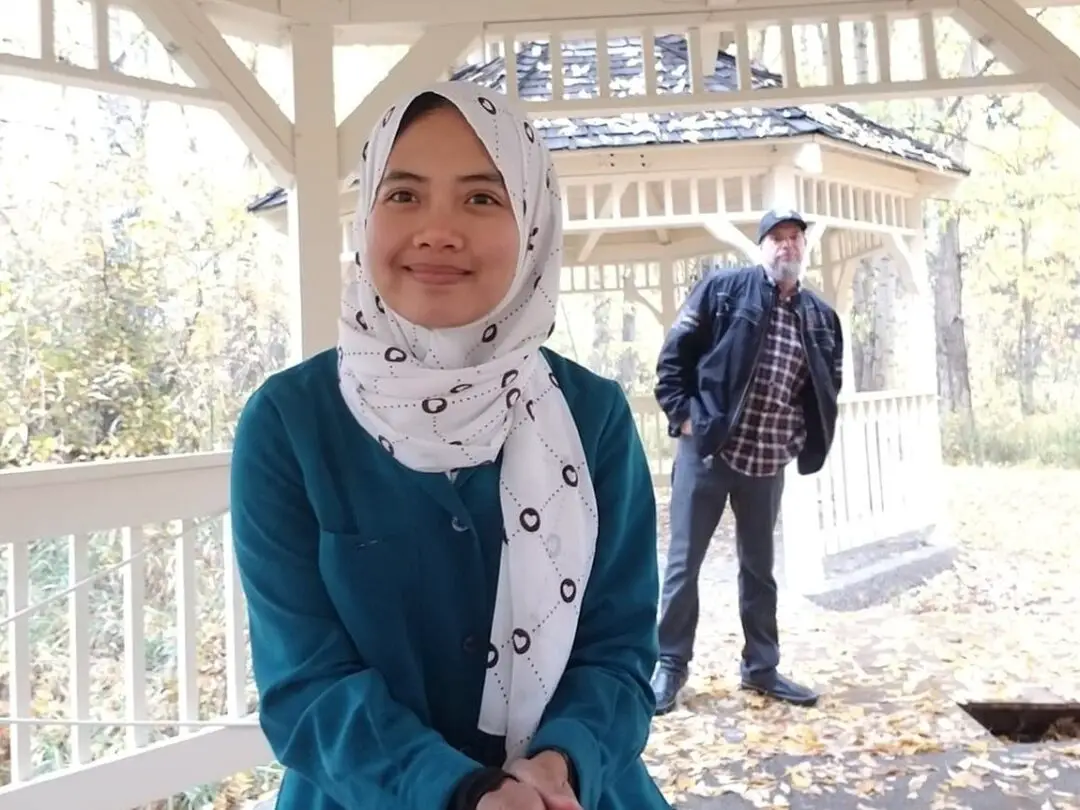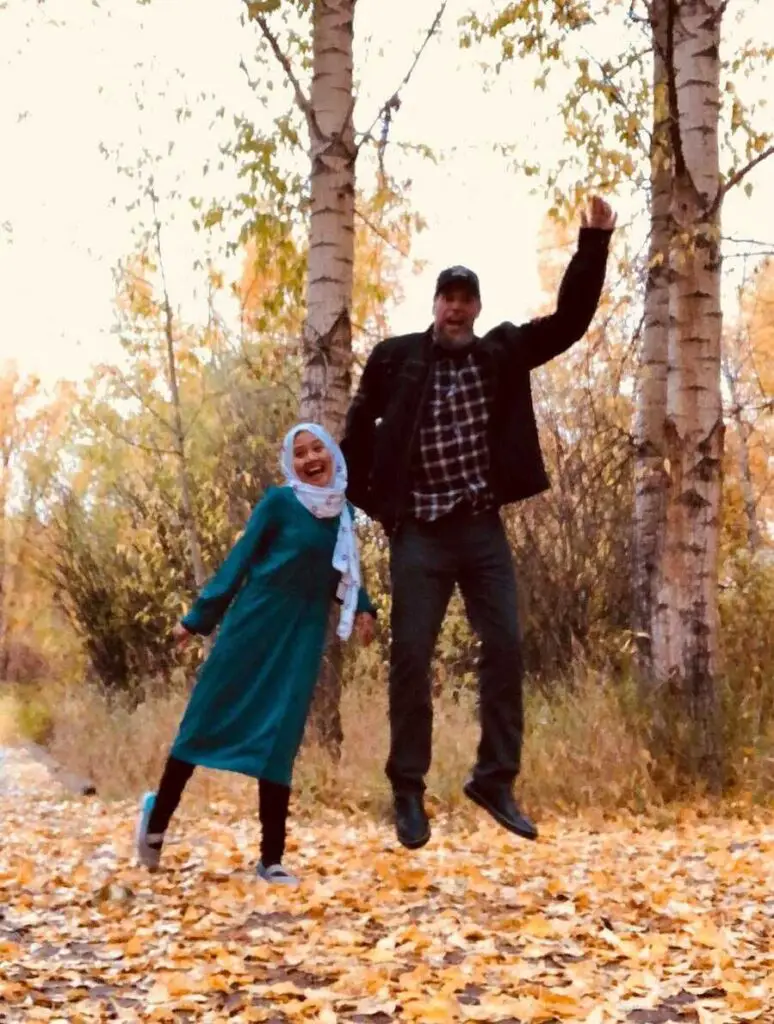One day, a curious non-Muslim friend asked me why I did not use my husband’s surname after marriage. I told her that in Islam, it is not necessary. However, I know several other Muslim women who do.
My friend’s question intrigued me, and I decided to research it. I quizzed scholars (Ulama) and questioned other Muslims to get their views.
I also learned the following:

By Maryam Hussein And Mohammed Francis
And Mohammed Francis
So, Why Should Muslim Women Not Use Their Husband’s Surnames After Marriage?
Islam prohibits married Muslim women from changing their surnames to their husband’s surnames. Females are intimately connected to their fathers by blood and afforded rights and inheritance. Doing so can result in broken family ties, a loss of identity, and costly and complex legal paperwork.
Though forbidden in Islam, many Muslim women resident in non Muslim majority countries change their surnames for practical or personal reasons.
It is often out of convenience, even as a compliment to her new husband and they mistakenly believe it will ease getting government IDs, passports, and other documents.
Most Muslims hate this practice, saying it is foreign and does not belong in Islam.
This article explains why Muslim women should not take on their husband’s surname after marriage.
It also explores the reasons and problems that can occur when they ignore the prohibition.

 – Sheikh Abdul Hakeem
– Sheikh Abdul HakeemFive Reasons Why Islam Prohibits Muslim Women From Taking A Husband’s Surname After Marriage
(Click Link To Jump To Section And Arrow To Return)
- Adopted Children (and Wives) MUST USE Their Real Father’s Name & Sister Hafas’s Story
- Using Your Real Father’s Name Is Just And Fair
- Muslims Must Call Adopted Children, Brothers And Married Women, Wives
- Substituting Your Father Is Disbelief (Kufr)
- Changing A Surname Is A Practical Nightmare & Sister Zaynab’s Story
- Conclusion
- Why Muslim Women Can Use Her Husband’s Surname – Scholars Weigh In!
- Related Questions
- References & Useful Links
- Videos
1. Adopted Children (And Wives) MUST USE Their Real Father’s Name
In Islam, Muslim men and women MUST NOT break blood bonds or lineage with fathers and mothers for any reason.
Changing your husband’s surname by legal means does just that. However, some Muslims argue that breaking name ties is not deliberate rejection.
They say it should not imply that you stop loving your parents or you cease contact with them.
However, by taking your husband’s surname, a woman has ignored an Islamic prohibition.
The evidence for the prohibition is a Quranic verse instructing Muslim parents NOT to change the surnames of orphaned children under their care to their own.
instructing Muslim parents NOT to change the surnames of orphaned children under their care to their own.
Let your adopted children keep their family names. That is more just in the sight of Allah. But if you do not know their fathers. Then they become your fellow believers and close associates.
The Holy Quran Al Ahzab 33:5
In the verse, Allah (SWT) prohibits Muslims (of either sex) from claiming their adoptive fathers are their actual fathers and using their surnames as their own.
Orphans (children or adults) must have the same surname as their deceased father and adoptive parents cannot force them to use theirs.
By extension, scholars argue that Islam also prohibits women from legally changing their surnames after marriage and urges them not to use the same surname as their husbands.
Hafsa’s Story – I Lost Myself In A New Surname
It took some time to adjust to my new surname. At first, I felt overjoyed to be addressed by my husband’s surname after marriage. It was romantic.
However, it sounded strange and unfamiliar. Later on, I began to feel as if I had lost my identity.
I love my original surname, Hafsa Abdul Aziz, but now I am Hafsa Marwan. The new surname does not suit me.
Above all, I feel as if I have lost myself. I had to correct old friends with my new name each time I ran into them. When people adddress me by my father’s surname, I felt I was the real me. I miss that.
By Maryam Hussein
2. Using Your Real Father’s Name Is Just And Fair
The Quranic verse Al Azab 33:5 also states that the main reason for not changing and keeping an orphan’s family name is that it is more just and fair in the eyes of God (Allah SWT).
also states that the main reason for not changing and keeping an orphan’s family name is that it is more just and fair in the eyes of God (Allah SWT).
Scholars comment that if it pleases God, Allah (SWT), it is enough for any other Muslim to follow.
Likewise, a Muslim woman who keeps her own and does not change her surname to her husband’s after marriage is acting just and fair in the eyes of God, Allah (SWT).

3. Muslims Must Call Adopted Children, Brothers And Married Women, Wives
Allah (SWT) in Verse 33:5 also obliges adoptive parents to use brother or sister in Islam when addressing their adopted children.
also obliges adoptive parents to use brother or sister in Islam when addressing their adopted children.
Likewise, a woman’s relationship with her husband is that of a ‘wife’ and not more.
After marriage, people know her as the wife of so and so or the mother of her son. (i.e. Um Ahmed)
In marriage, she has committed to raising a family, but she is not her husband’s property, nor does she have any blood or genetic relationship with him.
So, a surname change is of little value.
Changing her family name signals an outward disassociation from her father and her bloodline and taking on a fresh affiliation with her husband.
As in the case of the orphan, Islam obliges a married Muslim woman to maintain her true identity by ALWAYS using her father’s surname after marriage.
4. Substituting Your Father Is Disbelief (Kufr)
A married Muslim woman changing and claiming her husand’s surname may also be an act of disbelief (Kufr).
The well-known Hadith describes Prophet Mohammed (SAW) leveling the charge of disbelief (Kufr) at any Muslim, feigning that another man is their true father.
describes Prophet Mohammed (SAW) leveling the charge of disbelief (Kufr) at any Muslim, feigning that another man is their true father.
In the Hadith , a close companion of Prophet Mohammed (SAW) called Abu Dharr (RA) quotes him saying:
, a close companion of Prophet Mohammed (SAW) called Abu Dharr (RA) quotes him saying:
A person who attributes his fatherhood to anyone other than his actual father, knowing that he is not his father, commits an act of disbelief (Kufr).
Saheeh Bukhari and Muslim
Of course, by getting married, a Muslim woman has not replaced her actual father with her husband, claiming him to be her father.
However, by changing her name to his, she has effectively declared her allegiance to another man and detached herself, in name at least, from her father and his family tree.
5. Changing A Surname Is A Practical Nightmare
Logistically, a Muslim woman changing her surname to her husband’s after marriage creates more problems than it solves.
- A newly married Muslim woman faces the hassle and additional expense of updating her cards and documents to her new surname. (passports, driving licenses, credit cards, health, colleges, clubs, social security and government registrations, etc)
- In the event of a divorce or her husband death, she suffers the inconvenience and expense of having to revert to her old name or her new husband’s name.
- She confuses her personal history and makes it difficult for old friends and acquaintances to look her up and find her.
Sister Zainab’s Hassle After Taking Her Husband’s Surname
When I married, I legally assumed my husband’s surname, as is customary in my country. Then, we relocated to Saudi Arabia. Later, I learned about the Islamic teachings on changing a surname, and I decided to revert to my original surname.
However, changing my surname back to my father’s was lengthy and tiresome. I had to return to my home country for a new passport with my original surname.
Then, I came back to Saudi Arabia and reapplied for a new resident permit under my former surname.
Alhamdulillah, I eventually managed to change my surname back to my original name.
However, had I known the gravity of the matter, I would NOT have taken my husband’s surname in the first place, and honestly, it is entirely unnecessary.
By Maryam Hussein
Conclusion
The proper, most Islamic choice must be for a woman to keep her father’s name after marriage.
A Muslim woman should not allow herself to be pressured or bullied by a husband and his family members to assume his surname.
Their intentions are most likely to be positive and inclusive. The family often only wishes her to feel she belongs and at home in the new situation.
Sometimes, having the same surname as your husband is convenient when, for example, you are dealing with the school admin or in certain social situations.
However, the advantages seem like nothing compared to the downsides.
In the past, marriage forced Western women to give up their surnames while Islam insisted women ALWAYS kept theirs.
Sadly, some ignorant Muslim women in non Muslim majority countries countinue to copy and adopt old Western marriage name changing customs.
Note that not one of Prophet Mohammed’s (SAW) many wives used his surname and he was the greatest man who ever lived.
As believing Muslims, Islam requires we follow the examples of Prophet Mohammed (SAW) rather than outdated non-Muslim customs and practices.
To learn whay many othr scholars diagree with the the prohibition for women changing a name after marriage read Inside Saudi’s, Why Muslim Women Can Use Her Husband’s Surname – Scholars Weigh In!
Related Questions
Will A Change of a Woman’s Surname Complicate Claims of Inheritance From Parents? Yes! Having a birth certificate would not be enough. A woman with a different surname must prove heirship and show rightful inheritance. Proofs could include a notarized name change affidavit, family books, old passports, and ID cards, etc.
Can A Muslim Woman Legally Combine Her Husband’s Surname With Her Own? Yes! In most countries, it is legal to hyphenate surnames. However, this is not an Islamic practice. Islam obliges a woman to use her surname and not combine it with her husband’s.
Can A Muslim Change Their First Name? Yes! It can be difficult, but it is legal in most countries, and many revert Muslims change their names. However, name changes lead to future complications in proving identity.
References And Useful Links
Changing Surname After Marriage In Islam – Islam Q&A
– Islam Q&A
Ruling On A Husband Forcing A Women To Take His Surname – Islam Q&A
– Islam Q&A
Just Married: Can I Use My Husband’s Last Name? – About Islam
– About Islam
Give Orphan Children Their Real Father’s Surname -Surat Al Ahzab 33:4 & 5 – Quran.com
– Quran.com
An Act Of Disbelief (Kufr) To Attribute Another Man In Place Of A Father – hadeethenc.com
– hadeethenc.com
Day of Resurrection – People Will Be Called Forward By Their Father’s Name – Islam Q&A
– Islam Q&A
Why Muslim Women Can Use Her Husband’s Surname – Scholars Weigh In! – insidesaudi.com
Videos
Muslim Women Not Change Surname After Marriage – Sheikh Abdul Hakeem
– Sheikh Abdul Hakeem
You Are Your Father’s Child- Maintain Your Family Name Other Than Exceptions – Mufti Menk
– Mufti Menk
Using Husband’s Surname Does Not (Necessarily) Imply Breaking Family Ties  – Zakir Naif
– Zakir Naif
